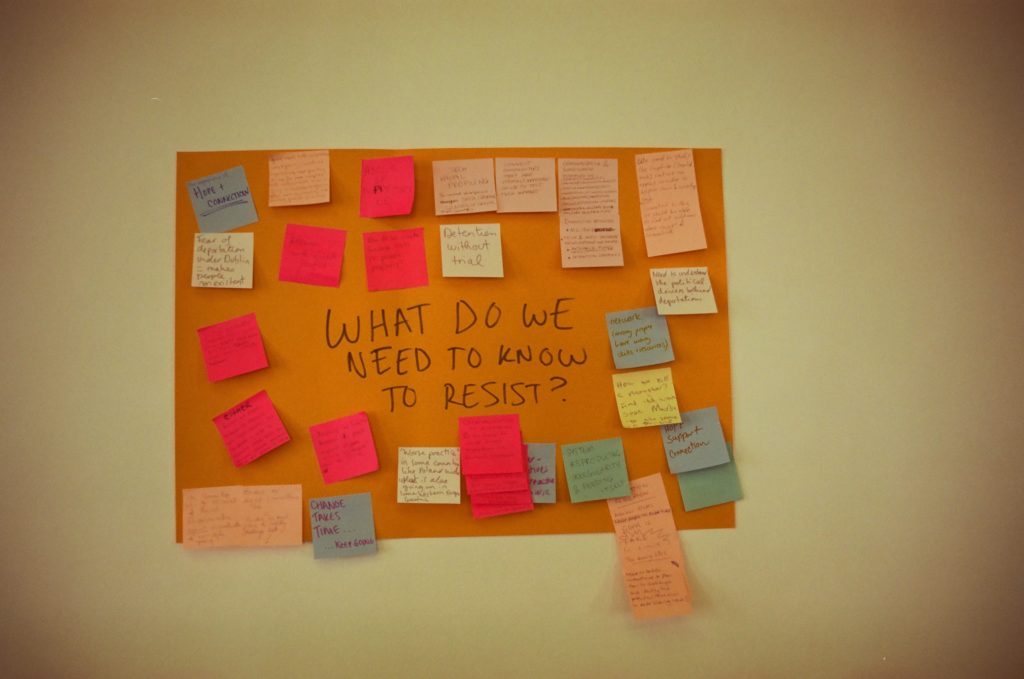#CareNotControl #blog
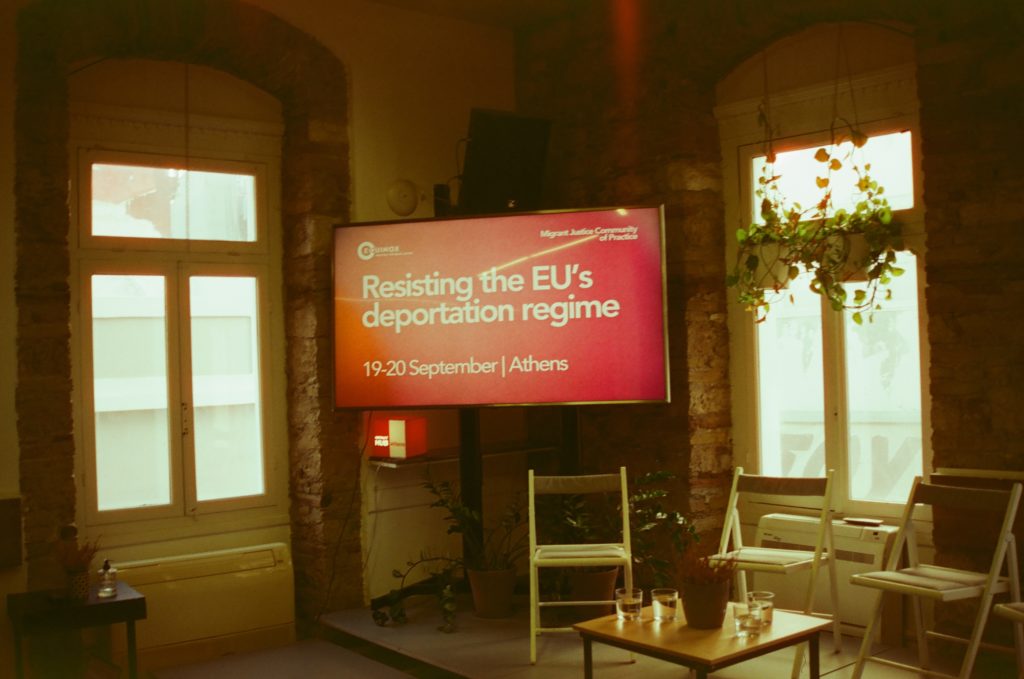
Written by Adla Shashati, Eva Ehoke, Jennifer Kamau
The Migrant Justice Community of Practice is a space for migrant and racialised people-led organisations to meet, build power and discuss strategies for building beyond punitive migration control.
In September, we gathered migrant-led collectives and activists from more than 15 countries in Athens in response to the EU’s deportation regime. In a climate of rising far-right power in Europe, where billions of euros are spent criminalising migrants instead of providing care, we sense an urgency to bring affected communities together to challenge Europe’s deadly migration and border policies.
We came together with the objective to organise toward the rejection of the EU “Returns Regulation” – more accurately named the “Deportation Regulation”. This recently proposed legislation aims to facilitate deportations from the EU, taking the immoral and punitive turn of European politics a step further.
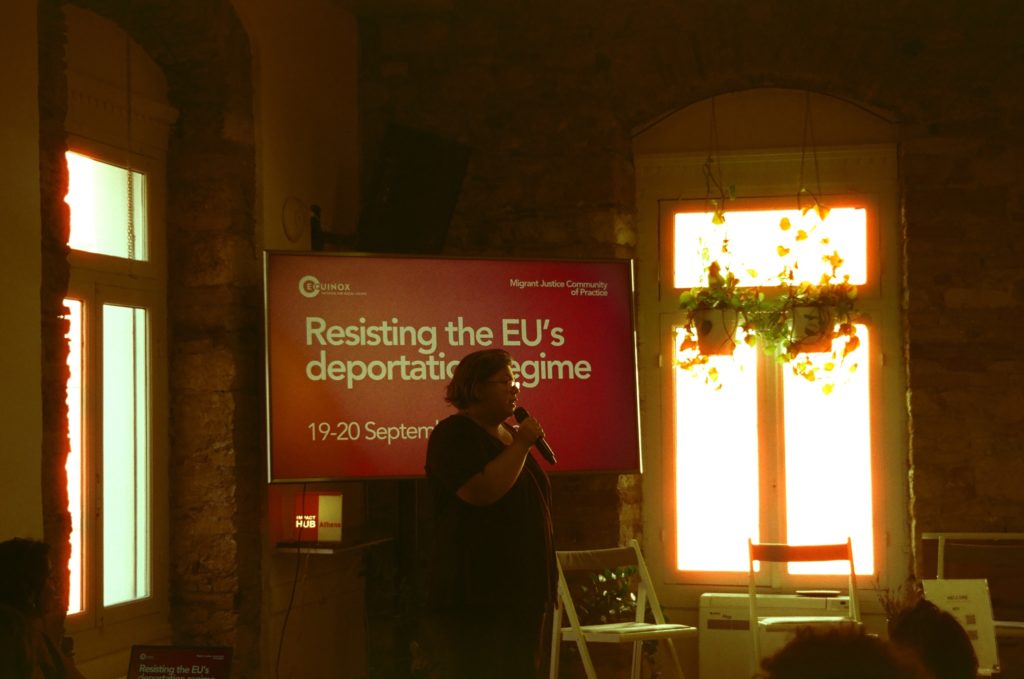
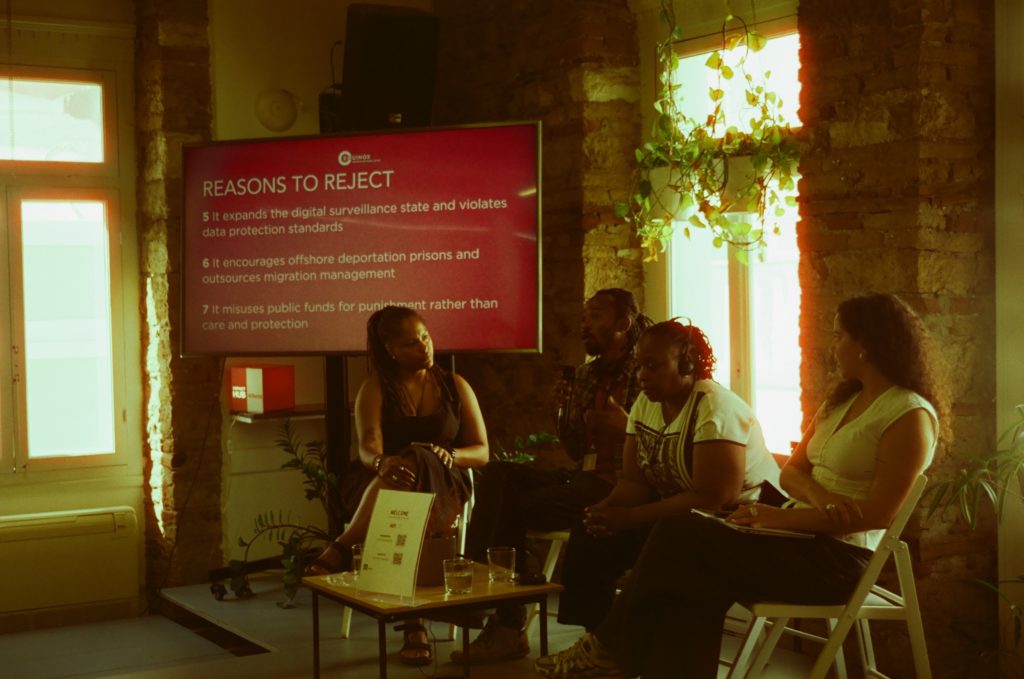
When planning this gathering, we hoped to build collective resistance to the EU deportation regime anchored in abolitionist principles and led by communities most impacted. Grassroots, migrant-led groups are on the front lines of the fight against the punitive turn in migration policy, and yet are rarely resourced or recognised. We asked ourselves: how do we design an event that would not only allow migrant-led and racialised groups to connect but also build concrete community-driven responses to the EU’s harmful policies?
We wanted to create a space where migrant-led struggles were central and where discussions about the problem shift into acts of resistance. We decided to convene in Athens, Greece, a city at the forefront of a dangerous, violent and punitive escalation in European migration policy, with recent legislation to suspend the right to asylum and criminalise undocumented migrants. There, we heard from local migrant-led groups who shared their strategies in the face of increasing repression, highlighting the pressing need to build translocal coalitions.
Throughout the day and half of the gathering, we made space for action-oriented sessions, spending time collectively learning and strategising. We hoped to avoid surface-level discussions and instead come up with a roadmap for joint actions.
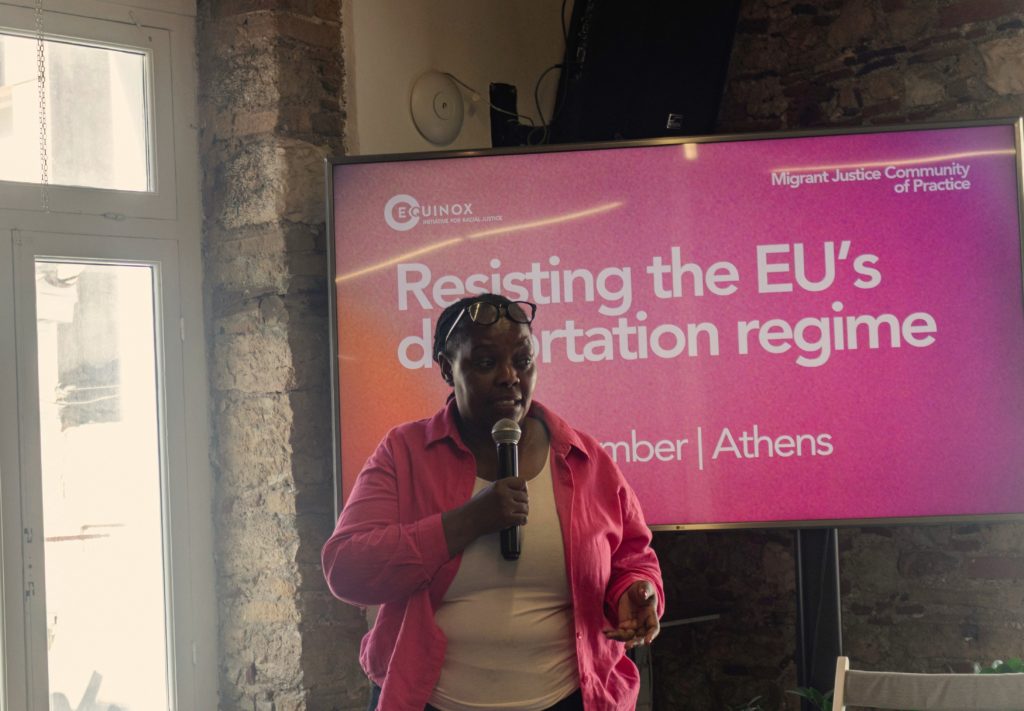
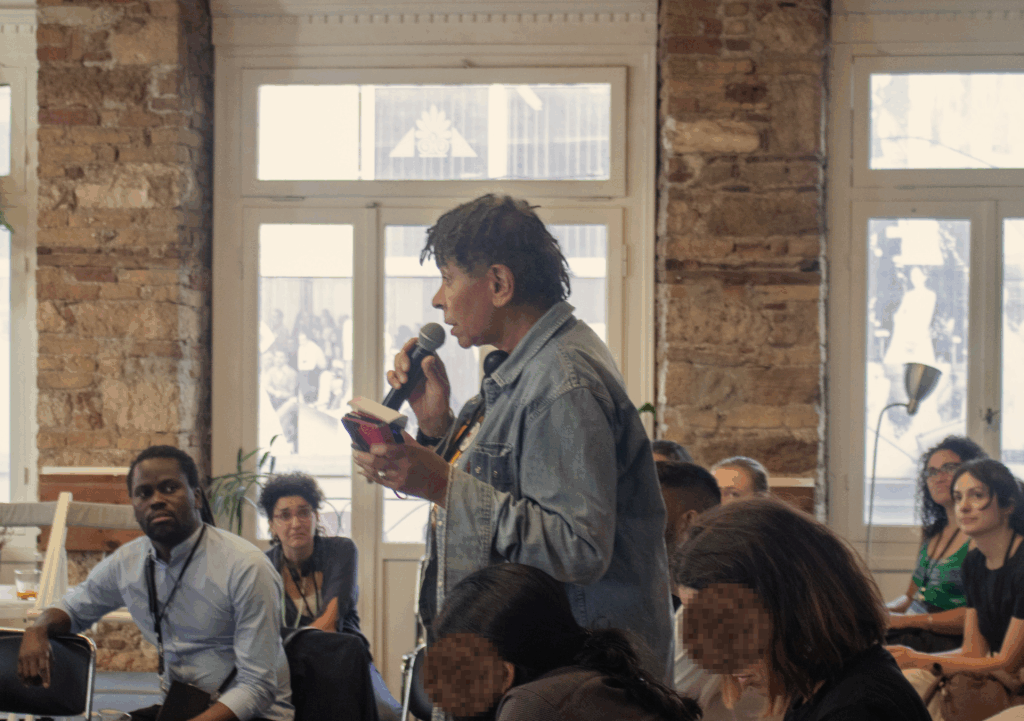
We kicked the event off with stories from activists organising in Germany and Senegal who shared concrete tactics of resistance, from building community-led support networks to putting pressure on institutions. In the first workshops, we gathered in groups to answer the question “what do we need to know to resist the EU’s deportation regime?”.
“Athens reminded me that resistance is collective. When people who suffered from the EU’s deportation regime finally speak for themselves not as victims but as agents of change hope becomes real.”
Ibrahima Konaté, Missing Voices (REER), Senegal

We looked at different facets of the EU’s deportation regime, from digital surveillance to legal aspects, criminalisation of migrants, border externalisation and impacts on gendered communities. Workshops explored how the EU’s migration framework has shifted from protection to criminalisation – where policies are geared towards surveillance, detention and deportation, and how the EU externalises its borders through migration control agreements and return hubs. We also discussed the broader narratives that justify the expansion of surveillance frameworks on migrants or racialised communities, including increased framing around terrorism and smuggling.








The upcoming “Deportation Regulation” illustrates the punitive turn of EU’s migration policies. It expands detentions, deportations, and the EU’s digital surveillance infrastructure, whilst simultaneously legitimising racial profiling by encouraging state-led persecution of migrants.
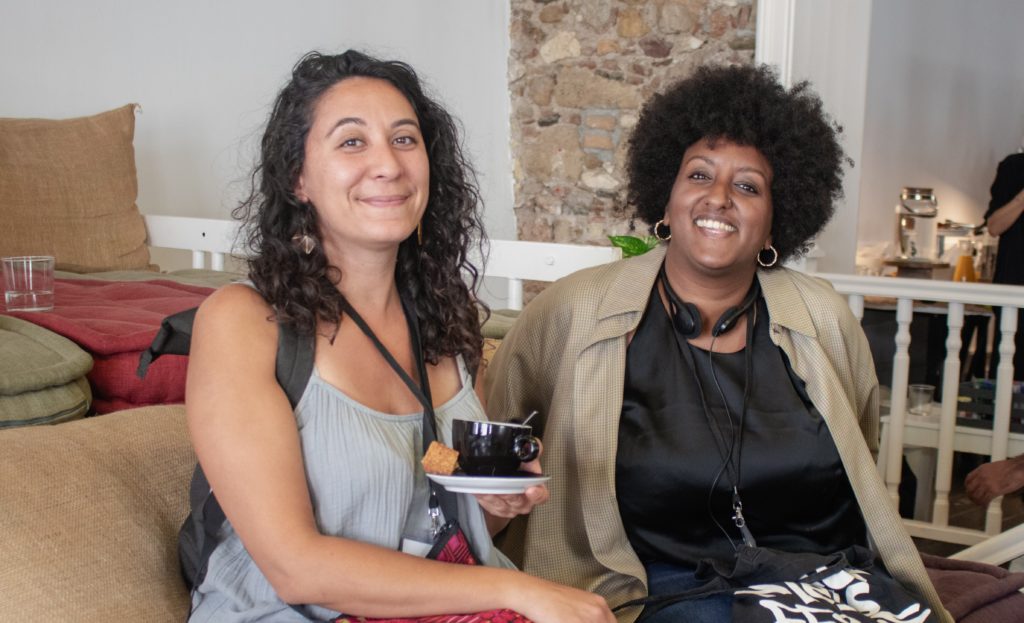
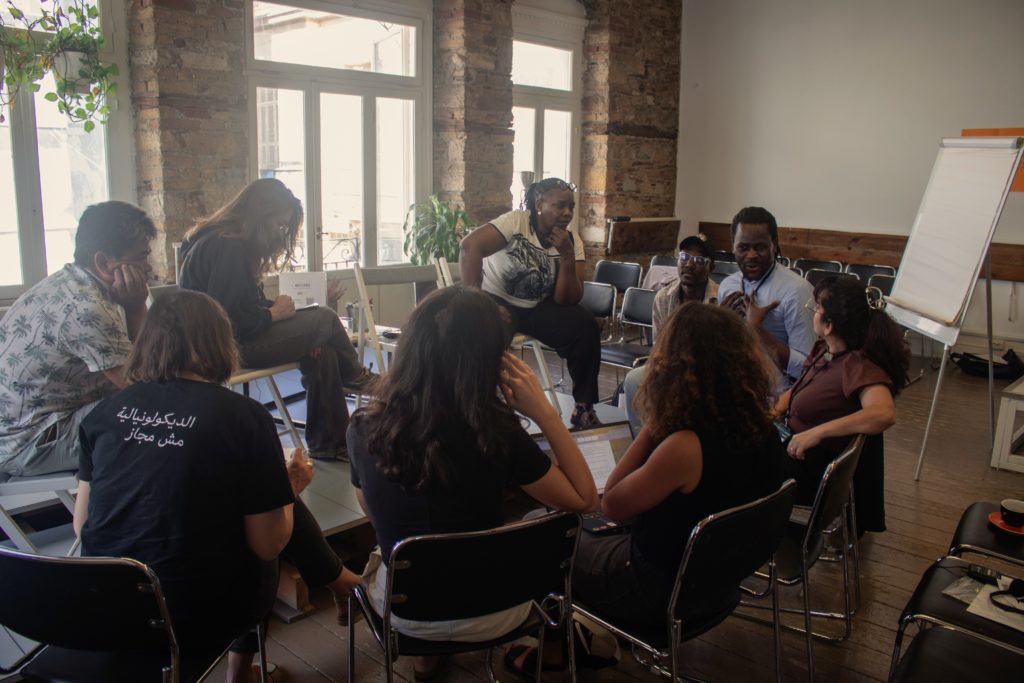
Shifting from testimony to collective resistance
The majority of the event was dedicated to planning long-term strategies to resisting the EU’s deportation regime. Departing from reformist tendencies in most campaigning and advocacy on migration policy we asked ourselves – how do we build toward a total rejection of the ongoing expansion of the EU Deportation framework? What actions do we need to take?
We shared strategies to resist EU’s harmful migration policies – whether traditional advocacy tools, direct community mobilisation or legal mechanisms. By collecting insights from each workshop, we’ve put together a draft list of activities we’d like to implement together, ranging from strikes and boycotts to the production of storytelling videos or the use of legal remedies. This lists a rough sketch of the roadmap for joint actions we had envisioned when we began to plan the event.
Just as importantly, in times where isolation and despair prevail for many of us, we made a point to hold space for creativity, care and bonding. Together, we wrote a manifesto calling for radical change, we painted a banner, we celebrated. These moments reminded us that our struggles must also be fueled by rest and joy.
“Oppressed communities need spaces to breathe and rest, to build moments of joy and community. Anti-racism means the self-organisation of oppressed communities.”
Selam Tesfaye, Il Cantiere, Italy
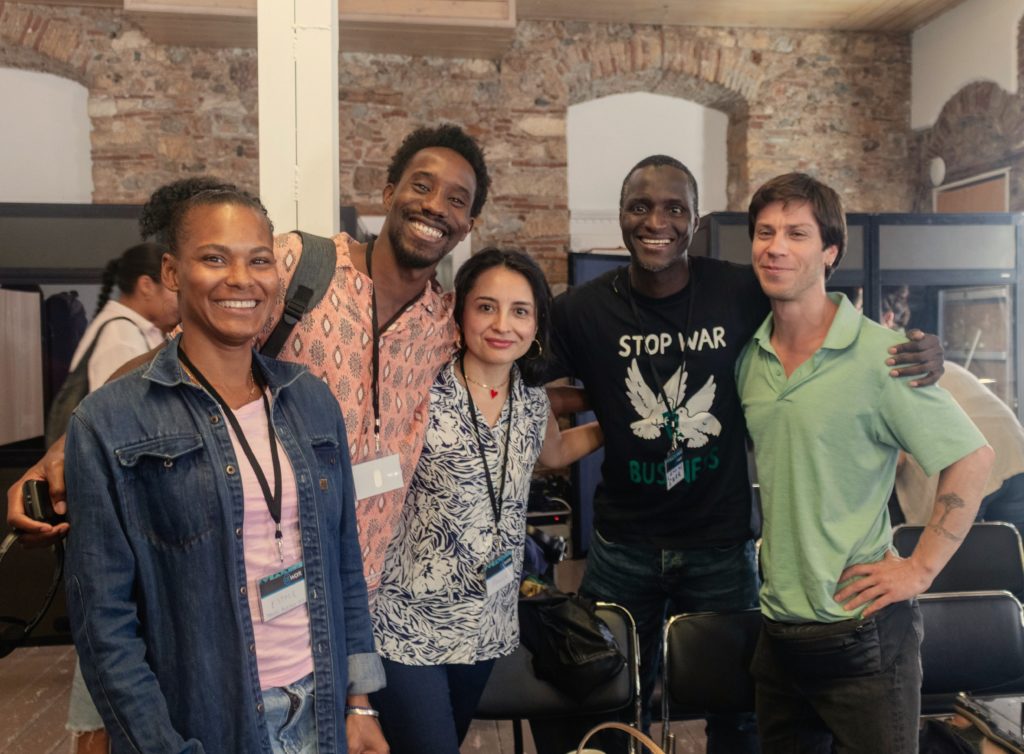
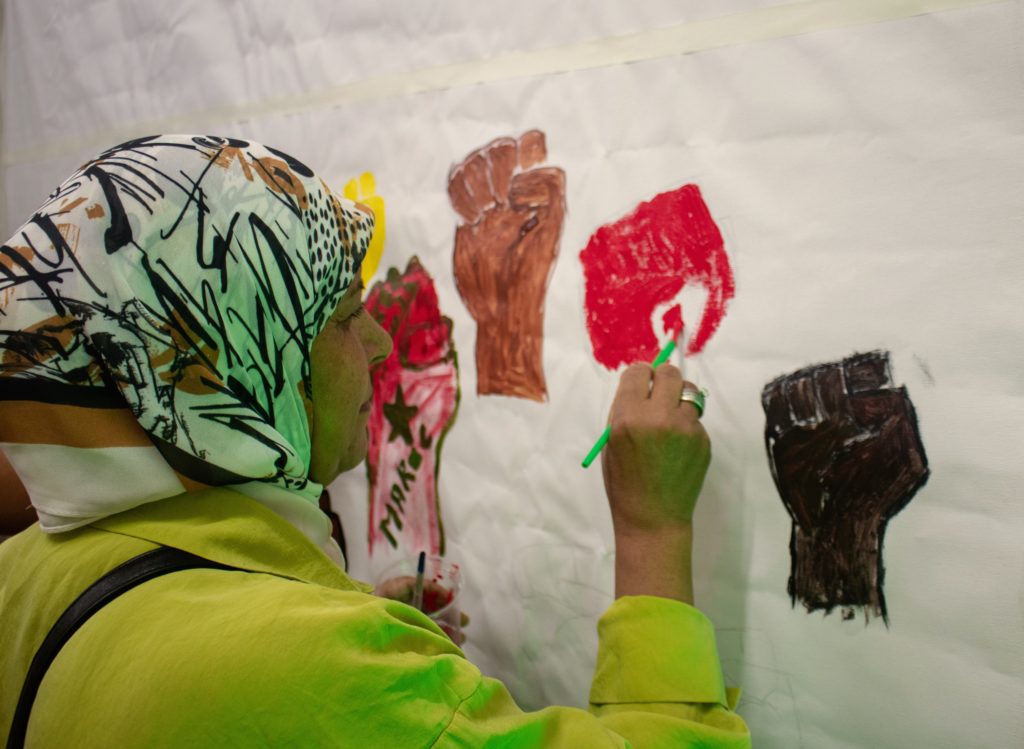
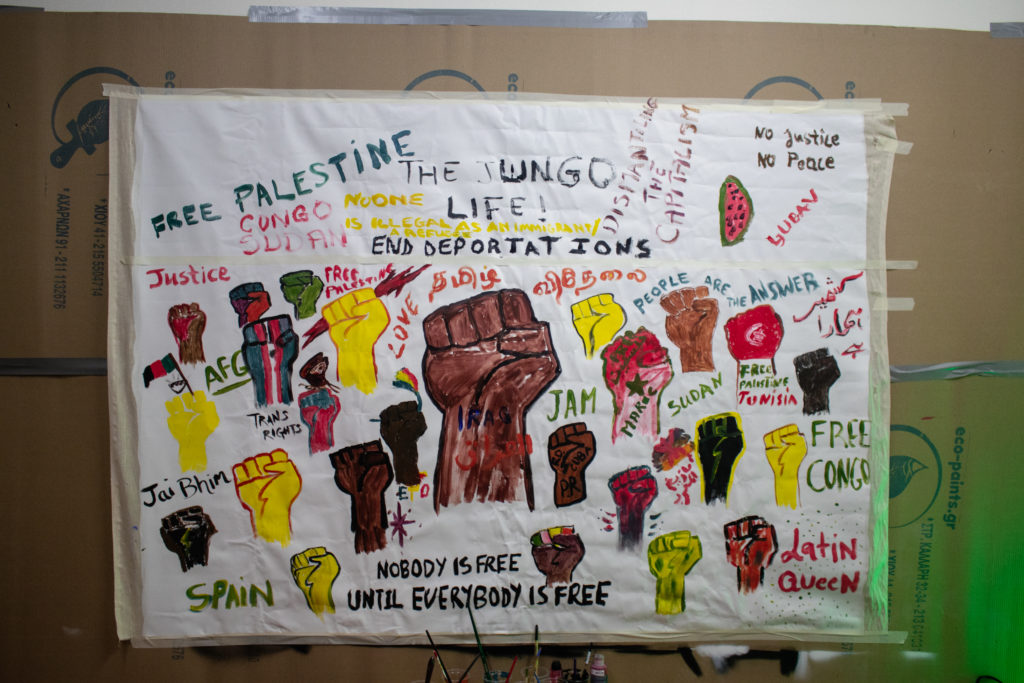
“I was surrounded by others who carry stories of movement, loss, and resistance, I felt something I hadn’t in a long time — belonging. It reminded me that our strength lies not in belonging to a nation, but in belonging to each other. Our power lies in linking our resistance, not working in silos. These two days showed how deeply the UK’s detention and deportation policies are tied to Europe’s wider border machinery. Post-Brexit hasn’t severed those ties — it’s made them murkier. Our fight must be transnational, rooted in lived experience and solidarity that refuses to stop at the edge of any map”
Gee Manoharan, Association of Visitors to Immigration Detainees, UK
The connections we have created in Athens are the starting point of a broader movement centreing migrant-led organisers. With the negotiations around the EU’s Deportation Regulation accelerating, one of our immediate focuses is to catalyse collective efforts to stop the law.
But we know that movements can only last if we intentionally nurture the links we have built and if we join forces with our peers standing up against oppression and injustice – including workers, queer and trans communities, movements against genocides in Palestine, Sudan and Congo, and those fighting the colonial order. We will keep documenting how we attempt to do this, eager to continually question ourselves, learn and above all, take action.
